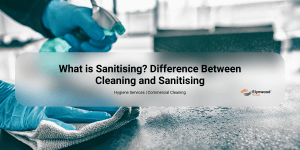Glass fencing around pools is common in commercial settings. It’s used in apartment complexes, hotels, wellness centres and outdoor venues to keep areas secure, compliant and visually open. But glass that’s exposed to chlorine, salt, rain and constant foot traffic can quickly lose clarity.
Smears, watermarks, corrosion and grime make pool glass look neglected — even if the rest of the area is spotless. Maintaining it properly takes more than a wipe-down. Here’s how to clean and preserve pool glass in high-use commercial environments.
Use the Right Equipment from the Start
The quality of the clean depends on the tools. For commercial-scale areas, the following are standard:
- Soft squeegees or glass-safe scrubbers
- Microfibre cloths (non-abrasive, lint-free)
- Buckets with clean, filtered water
- Telescopic poles for height and reach
- Commercial-grade glass cleaner or purpose-formulated pool glass products
Avoid using paper towels, standard mops or household sprays — these can leave lint, residue or even micro-scratches on glass over time.
Remove Dust and Surface Grit First
Before applying cleaning solution, rinse the glass panels with clean water to remove sand, dust or grit especially in outdoor or coastal locations. Skipping this step can cause surface scratches during the scrubbing phase.
If the pool area is landscaped, make sure nearby gardeners aren’t using leaf blowers or edge trimmers directly next to glass. Fine debris often ends up stuck on the panels and causes streaking when wet.

Apply Cleaner and Agitate Gently
Spray or apply the glass cleaner evenly across each panel. Use a non-abrasive scrubber or sponge to gently loosen mineral spots, fingerprints and residue. For saltwater pools, it’s common to find salt build-up at the base of panels this may need extra attention with warm water and a cloth.
Always clean in straight lines to avoid visible circular marks. Working top to bottom helps manage runoff and avoids missed patches.
Squeegee and Buff Dry
Use a clean squeegee to remove the solution from the glass surface. Wipe the blade between strokes. Finish with a dry microfibre cloth to remove edge moisture and polish the surface.
In commercial pool zones, streaks and water trails become more visible when the sun hits the panels a proper dry-down avoids this.
Watch for Signs of Etching or Corrosion
Long-term exposure to chlorine or salt can permanently mark pool glass. This often appears as a hazy patch that doesn’t come off with standard cleaning.
If you notice:
- Cloudy or dull patches after cleaning
- Roughness when running your fingers over the glass
- White or chalky marks at the base
…the panel may be etched. Once this happens, it requires restoration — or in some cases, full replacement.
To prevent this, apply a protective sealant after cleaning. There are commercial products designed for glass fencing that create a barrier between the surface and moisture.

Maintain a Regular Cleaning Schedule
In commercial settings, pool glass should be cleaned:
- Weekly in standard conditions
- More frequently in coastal locations or during peak use (e.g. summer months or school holidays)
Avoid letting water dry naturally on panels — this is the main cause of mineral spotting. The more regularly glass is cleaned, the less aggressive each clean needs to be.
Safety Around Pool Zones
When cleaning near pools:
- Use non-slip footwear
- Mark wet surfaces with signage if guests or staff are nearby
- Avoid leaving tools or buckets unattended
Glass panels may be near wet decks, electrical equipment or uneven ground — especially in older complexes. Cleaning staff should be trained to assess risk before beginning work.
Cleaning Is Visibility — and Perception
In a commercial space, clean glass sends a message. It reflects attention to detail and contributes to the overall impression of safety and upkeep. Visitors, guests and residents notice when a pool area is clean — and they notice even more when it’s not.
At Elynwood, we maintain outdoor areas with the same standard as interiors. Our team works across commercial, hospitality and strata properties, keeping pool zones clear, safe and camera-ready all year round.
FAQ
1. What’s the best way to clean pool glass in a commercial setting?
A. To clean pool glass effectively in commercial settings, use soft squeegees or glass-safe scrubbers, microfiber cloths, and a purpose-formulated pool glass cleaner. Always start by removing surface grit with clean water, then apply the cleaner and gently agitate with a non-abrasive sponge. Finish with a clean squeegee and dry microfiber cloth to remove moisture and polish the surface.
2. How often should pool glass be cleaned in commercial environments?
A. In commercial settings, pool glass should be cleaned weekly under standard conditions. However, in coastal areas or during peak use periods like summer or school holidays, it may require more frequent cleaning to maintain clarity and prevent mineral build-up.
3. What should I do if pool glass shows signs of etching or corrosion?
A. If you notice cloudy patches, roughness, or white, chalky marks on pool glass after cleaning, this could be a sign of etching or corrosion caused by long-term exposure to chlorine or salt. Once etching occurs, it may require restoration or full replacement. To prevent this, apply a protective sealant designed for pool glass after cleaning to create a barrier against moisture and chemicals.







